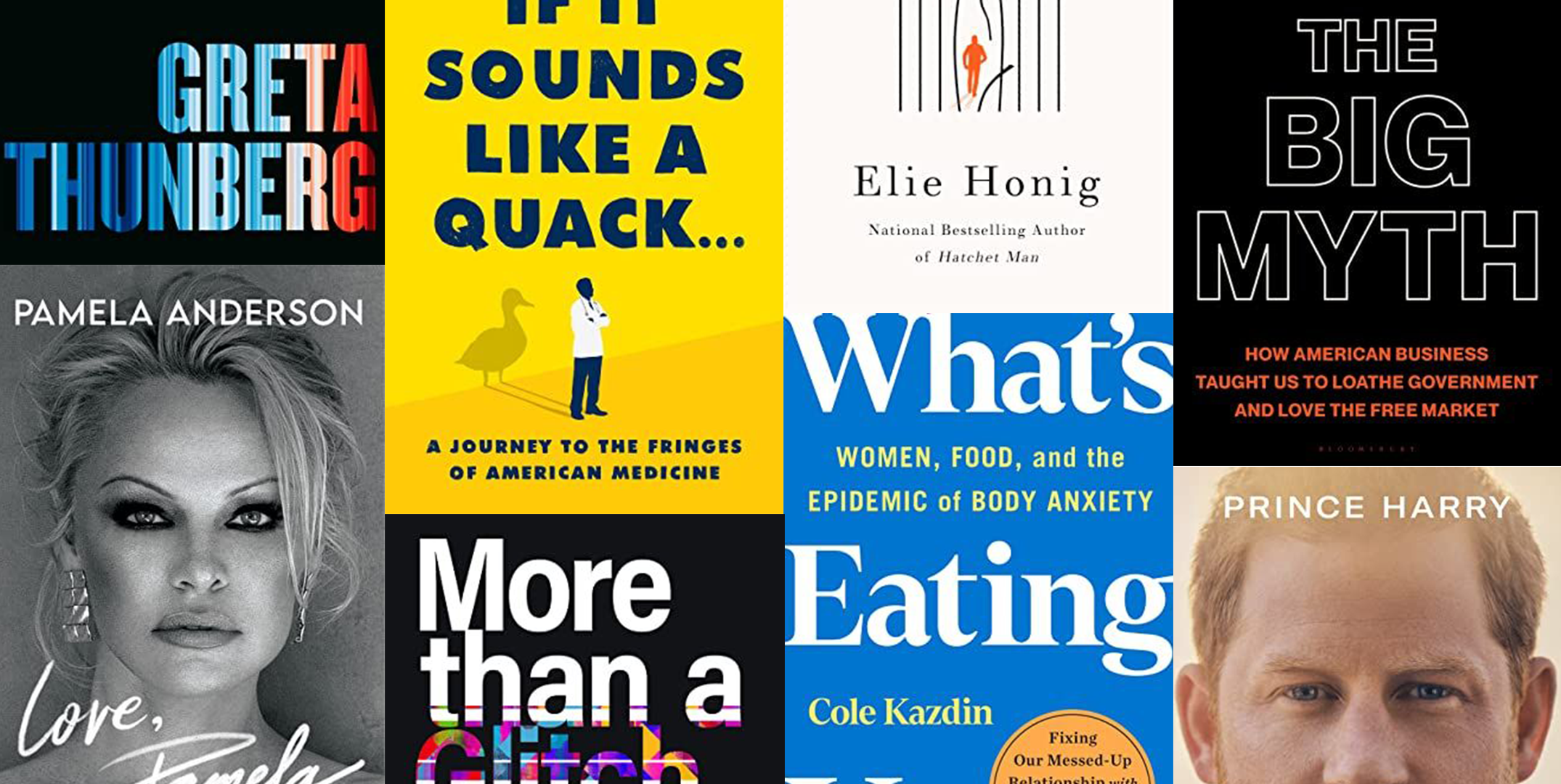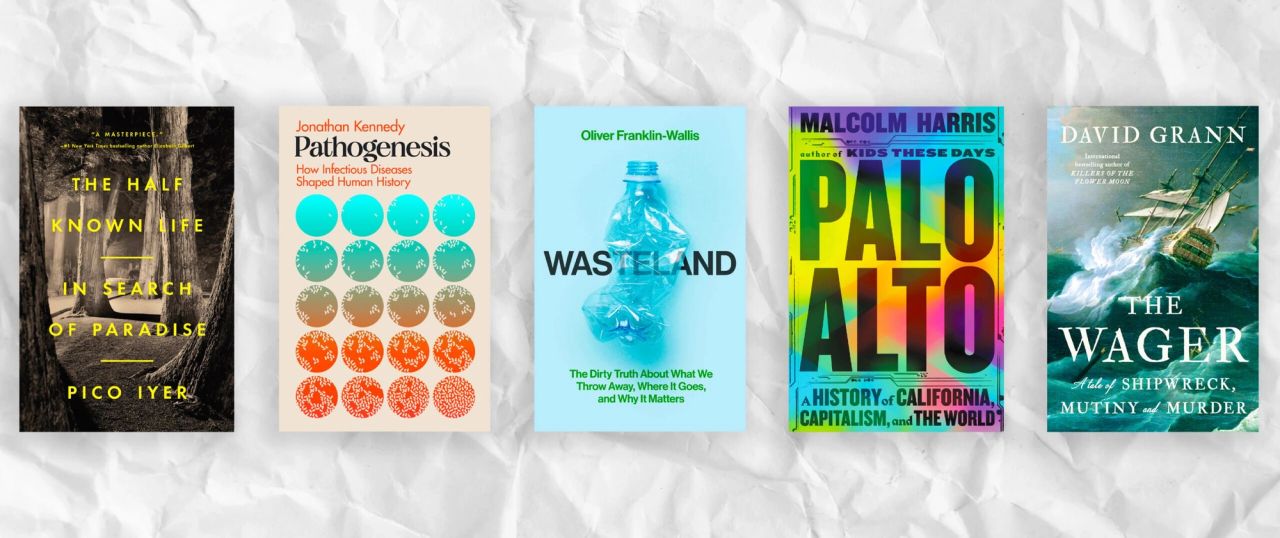Discover the World of Facts: Just How Non-Fiction Publications Make Checking Out an Engaging Experience
Non-fiction publications provide a distinct entrance to the globe of truths, changing the act of engaging with message right into a compelling expedition of authentic narratives and substantial facts. Whether discovering the depths of historic enigmas or the center of clinical innovation, non-fiction difficulties the intelligence and expands the horizons of understanding.
The Power of Real Stories
While fiction captivates the creativity, real stories have an one-of-a-kind power in their ability to resonate on a much deeper, more personal degree with readers. The authenticity of non-fiction narratives enables people to get in touch with the experiences, obstacles, and triumphs of genuine individuals, promoting a profound feeling of empathy and understanding. This link is unparalleled, as it connects the gap between the viewers and the subject, creating a shared human experience that transcends the pages of a book.
Non-fiction books can light up diverse point of views and societies, using understandings that might or else continue to be undiscovered. They provide a platform for voices that might be marginalized or neglected, thus promoting inclusivity and broadening the reader's worldview. By providing factual accounts, these stories have the prospective to influence and inform, stimulating vital thinking and encouraging educated discussions on a variety of subjects.
Additionally, the power of real stories depends on their capability to influence modification. Documenting personal trips and actual events can raise recognition and drive activity on social, political, or environmental issues. This transformative possible highlights the importance of non-fiction literature as a device for advocacy and adjustment in a progressively complicated world.
Introduction Historical Mysteries
History's enigmatic attraction astounds viewers as they dive right into non-fiction publications that unveil historical secrets. Non-fiction authors, armed with a wide range of papers, artifacts, and eyewitness accounts, rebuild occasions that intrigue and mystify.
Publications like "The Lost City of Z" by David Grann and "The Guy That Liked China" by Simon Winchester exemplify the genre's capability to change dusty archives into fascinating stories of expedition and discovery. Grann's job unwinds the enigma of British traveler Percy Fawcett's disappearance in the Amazon, while Winchester lights up the eccentric life of Joseph Needham, whose passion for old Chinese science improved historical narratives.
Such publications not only please the inquisitiveness of viewers but also motivate critical thinking, challenging them to examine approved historic narratives. By revealing facts hidden beneath time's layers, non-fiction books on historic mysteries enrich our understanding of the world, cultivating a much deeper gratitude for the past's complex tapestry.
Science Beyond the Lab

In fields like environmental science, non-fiction functions check out the interconnectedness of natural systems, describing phenomena such as climate change and biodiversity in means that are interesting and obtainable. Authors like Rachel Carson and Elizabeth Kolbert have actually made substantial contributions, translating complicated clinical data right into stories that resonate with the public subconscious. Books on modern technology and innovation, like those by Walter Isaacson, reveal the clinical foundations of technical developments and their social implications, linking the gap in between abstract theory and concrete truth.
Personal Growth Via Reality

Non-fiction jobs, such as memoirs, self-help, and biographies, supply profound lessons in durability, self-awareness, and compassion. They urge readers to assess their very own lives, established significant goals, and develop strategies for getting rid of challenges. Self-help books commonly existing evidence-based psychological methods for taking care of stress and anxiety or building efficient interaction abilities, equipping viewers with devices for individual growth.
Furthermore, non-fiction literary works can illuminate complex social problems and inspire activism. Through reality-based insights, readers are influenced to expand and evolve in purposeful means.
Experience in Real-Life Stories
Journey astounds the human spirit, and real-life stories provide a compelling look right into the remarkable experiences of people who have actually ventured past the boundaries of the ordinary. These non-fiction accounts draw visitors into worlds where guts, durability, and human ingenuity are checked versus the backdrop of untamed landscapes, perilous journeys, and undiscovered areas. By see page recording true events, these stories supply not only amusement however likewise beneficial understandings right into the difficulties and victories faced by those that dared to pursue the unknown.
Real-life experience stories, such as Jon Krakauer's "Into Thin Air" or Cheryl Strayed's "Wild", function as powerful testimonies to human endurance and decision. They paint vibrant portraits of lead characters who confront both exterior barriers and interior battles, allowing viewers to vicariously experience their physical and emotional journeys. These accounts provide authenticity to the journeys, supplying a raw suggestion of the uncertain and powerful nature of real-world difficulties.
Furthermore, these stories usually highlight the profound connections between people and their environments, highlighting themes of survival, adjustment, and exploration. Through their expedition of real-life experiences, viewers are motivated to review their very own lives, promoting a much deeper recognition for the spirit of expedition and the strength of the human condition.
Final Thought
Non-fiction literature offers as a powerful avenue for involving with the world via the lens of factual stories. By introducing historical enigmas, it uses understandings right into the past, while clinical improvements exist in a fashion that expands understanding beyond the boundaries of labs. The style cultivates individual development via real-life experiences, offering viewers with a feeling of adventure and connection to diverse societies and viewpoints. Inevitably, non-fiction publications celebrate human strength and stimulate intellectual curiosity.
Non-fiction publications provide an unique portal to the globe of realities, transforming the act of involving with text into a compelling expedition of substantial realities and authentic narratives.Background's enigmatic attraction mesmerizes readers as they dig into non-fiction publications that introduce historical secrets. From the intricacies of ecosystems to the subtleties of human habits, scientific research in non-fiction goes beyond the stereotyped photo of white coats and microscopes, supplying viewers a wider recognition of its applications.
By engaging with non-fiction, visitors can encounter diverse viewpoints and concepts, fostering psychological knowledge and learn this here now essential reasoning abilities.
